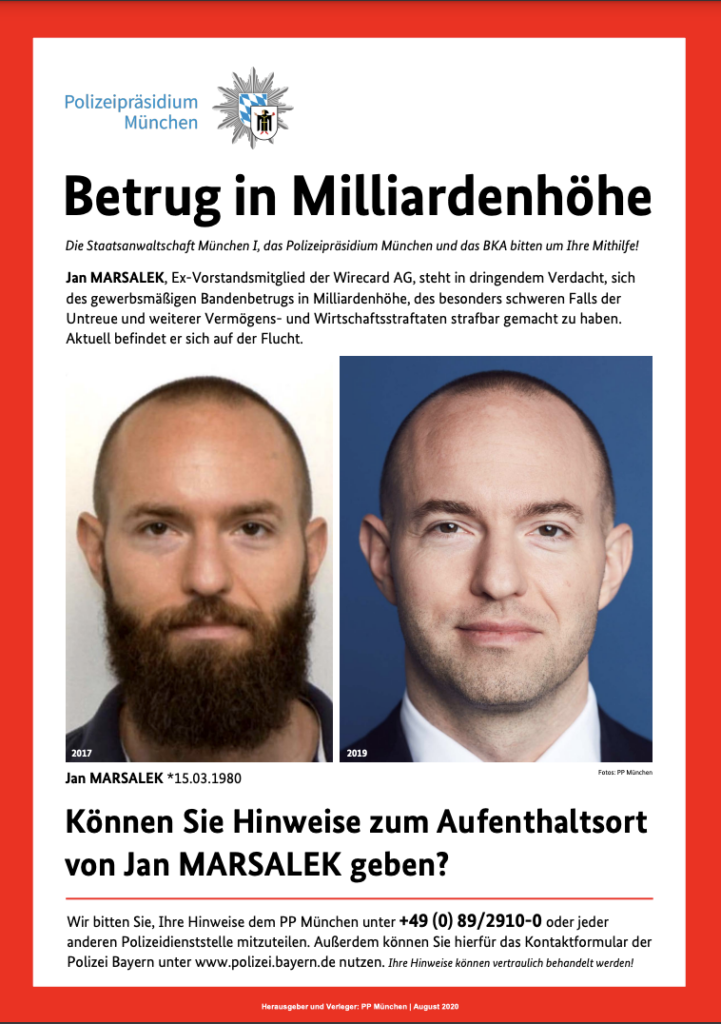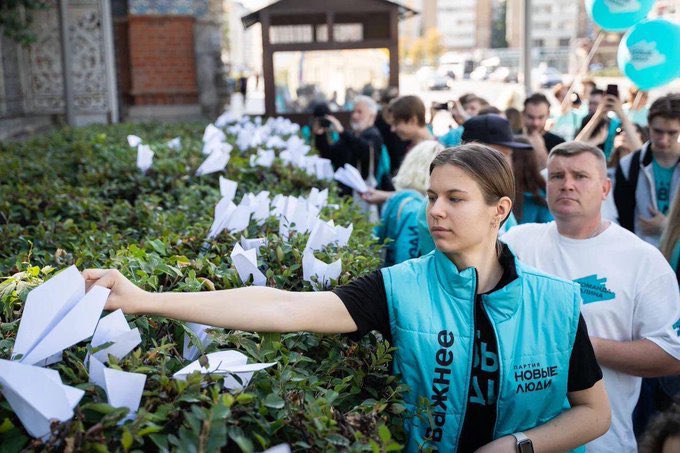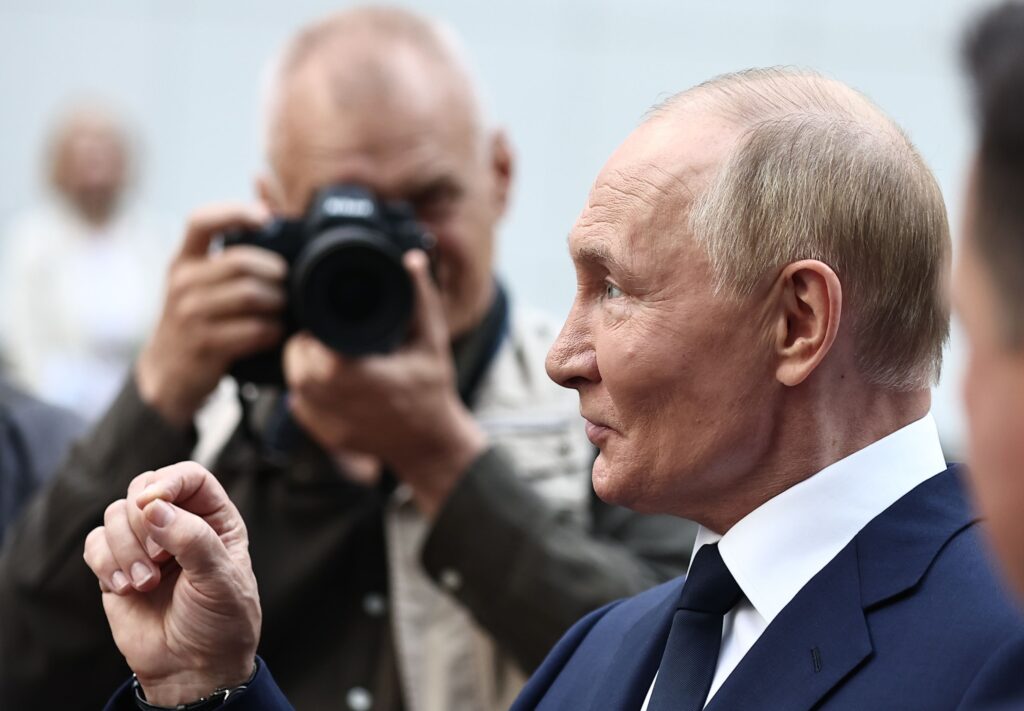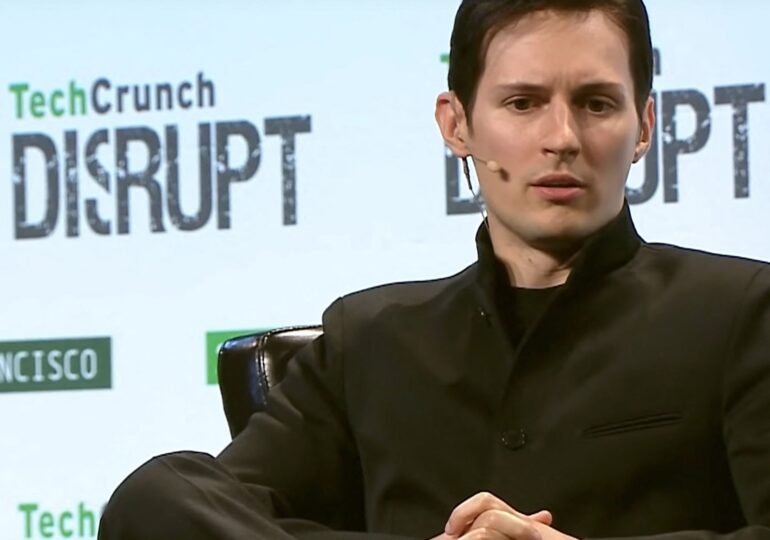The launch, development, and spread of the application follow the path of several digital businesses created by Russia in parallel with those in the USA, starting from 2006, controlled by the Kremlin and used to raise funds, propaganda, and espionage.
Through such tools, Putin managed to stay in power, create tensions in the West, and prepare for the attack on Ukraine.
In 2021, Wirecard, the largest financial services company in Germany, which also operated in Romania, collapsed following the disappearance of $2 billion due to financial engineering and false revenue and profit reports to investors.
Wirecard was listed on the German stock exchange and was a benchmark, part of the group of companies whose shares were used to calculate the DAX index of the German capital market.
Markus Braun, an Austrian investor, founded an online payment company in 1999, modeled after PayPal. At some point, he was joined by a mysterious figure, another Austrian, Jan Marsalek.

Starting in 2015, Financial Times began publishing a series of articles about the company's dubious business practices and how money was transferred following false reports and accounting fraud.
In the end, Markus Braun was arrested, tried, and convicted, while Jan Marsalek disappeared, according to the German weekly Der Spiegel, he was hiding in Russia, suspected of being an FSB agent.
The emergence and evolution of Wirecard closely resemble that of the Telegram social network, albeit on a different scale, but indicating the involvement of Russian secret services and the Kremlin elite in the dark labyrinth behind the online platform with nearly a billion users.
Russia's military plans are on Telegram
The arrest of Pavel Durov, the executive chairman of Telegram, by French authorities, was a real shock to the political system in Moscow.
The reaction from the Kremlin and Putin's propaganda networks worldwide was swift, consistent, and unapologetic.
"My opinion on Pavel Durov's recent arrest. I don't know what he did or didn't do, but the fact that the Russian government is so crazy about his arrest, combined with the closure of the Signal social platform, while allowing the Telegram network to thrive, raises a lot of questions about whether this is a freedom of expression issue," announced Bill Browder, a businessman and writer on corruption in Russia.

In the Kremlin-controlled press, ample space was given to describing Durov's arrest and the major implications such an action has on military communications.
"The possibility of a deal with the Russian president has caused Western elites to worry about their communication channels. Moreover, they know that part of the Russian military department's communications takes place through Telegram, and obtaining access keys to encrypted dialogues would mean gaining access to the Russian army's plans for special operations," according to an article published in the Izvestia newspaper.
The Connection Between Digital Applications and Military Actions
The concern in Russia is so palpable that it's hard for anyone not to notice that Durov's detention has caused a major crisis in Moscow, and the consequences will soon become apparent.
In 2006, two years after the appearance of Facebook, Pavel Durov and a university colleague from St. Petersburg, a city entirely controlled by Putin, where he served as an advisor and deputy mayor, noticed the popularity of the American network created by Mark Zuckerberg and decided to copy it, launching VKontakte.
As you know, we have been cooperating with the FSB and the Department K of the Ministry of Internal Affairs for many years, promptly providing information about thousands of users of our network in the form of IP addresses, mobile phone numbers, and other information necessary for their identification
Pavel Durov, in a letter addressed to Vladislav Surkov, the ideologue of the attack on Ukraine, Novaya Gazeta
In the same year, 2006, Jack Dorsey launched Twitter in the USA. However, Pavel Durov was absorbed by the Russian Facebook until 2013 when he founded Telegram, a network modeled after the American Twitter, while VKontakte passed into the hands of billionaires controlled by the Kremlin.
A year later, Vladimir Putin launched the attack on eastern Ukraine and annexed Crimea under the paralyzed gaze of Western leaders.

There is a direct link between the development of Pavel Durov's social applications, the development of digital and financial applications like Wirecard or Yandex (the Russian Google), and the military actions of the Kremlin. This is while Signal, another social platform heavily used in Russia, has been shut down, along with X, formerly Twitter, Facebook, and Instagram.
Additionally, YouTube is increasingly difficult to access, with limited availability, and videos run slowly. Content creators in Russia can no longer be paid, as the accounts through which they received money based on their audience engagement have been deactivated.
Telegram, the Most Successful Russian Project of the 21st Century
The harsh reaction following Pavel Durov's arrest in Paris indicates a problem even more serious than that suggested by the Moscow press.
In addition to affecting military communications, which oddly enough take place on Telegram, commentators argue that the entire espionage and propaganda network meticulously built by the Kremlin over the past decade has been severely disrupted.
Within the intelligence services, establishing a communication infrastructure is critical for any espionage operation.
The greatest challenge lies in the ability to transmit a secret from the agent who obtained it in the field to the center for analysis and future use.
Therefore, during World War II and the subsequent Cold War, agents needed liaisons, transmission stations, hidden mailboxes, messages written in invisible ink, etc.
The internet, digitalization, and mobile phones have partially solved the complex issue of secret communications.
Through social platforms, one can quickly contact, coordinate entire operations, and dozens of agents simultaneously, provided that message encryption is in place.
Furthermore, as an information entity, you can monitor others' communications, gather data, and launch disinformation campaigns to weaken adversaries if the digital platform provides you with decryption keys for other messages hosted on the application servers.
Vladimir Putin could not afford to miss controlling such a platform: "Telegram is one of the most successful Russian projects of the 21st century. Although the application's representatives and its owner, Pavel Durov, do everything possible not to be associated with Russia, it is a Russian site. It has Russian programmers, servers in Russia, and there is ample evidence of its cooperation with the Kremlin," wrote journalist Nazar Tokar in an analysis of the social network.
French prosecutors carefully built a case against Durov based on the offenses conducted by the largely unregulated Telegram platform, lacking moderation and content removal systems.
What Pavel Durov's Indictment Contains
- Complicity in managing an online platform to enable illegal transactions by organized criminal groups;
- Refusal to communicate, at the request of authorized authorities, the information or documents necessary for the realization and exploitation of lawfully authorized interceptions;
- Complicity in the possession of images of minors with pedophilic and pornographic characteristics;
- Complicity in the dissemination, offering, or provision of images of minors with pornographic content;
- Complicity in the acquisition, transportation, possession, offering, or sale of narcotics;
- Complicity regarding the offering, transfer, or provision without legitimate reasons of equipment, an instrument, a program, or data designed or adapted for attacking and accessing the operation of an automated data processing system;
- Complicity in organizing scams by organized criminal groups;
- Association with other criminals for the commission of an offense punishable by at least 5 years of imprisonment;
- Money laundering from crimes or offenses committed by organized criminal groups;
- Provision of encryption services to ensure confidentiality without a compliance statement;
- Provision of encryption means that do not exclusively provide authentication or integrity control functions without prior declaration;
- Import of encryption means that do not exclusively provide authentication or integrity control functions without prior declaration
Analysis of the charges shows that French prosecutors have built a case by documenting multiple offenses in which the Telegram platform was used, such as storing and distributing pornographic materials involving minors.
Furthermore, from the investigators' document, it appears that the French authorities officially requested the network administrators and most likely the executive president to take action to stop certain offenses, but Telegram representatives refused.
Hence the term "association" arises, most likely stemming from Pavel Durov's refusal or lack of action as prescribed by legal regulations.
But the indictment also includes the accusation of "providing encryption services," indicating a direct link between Telegram network administrators and entities provided with protected communication channels to commit crimes.
In conclusion, the document shows that Pavel Durov is accused of espionage against France by delivering unauthorized encryption services. The indictment has angered Putin because it resulted in losing control over the main digital communication platform of Kremlin-coordinated agents.

